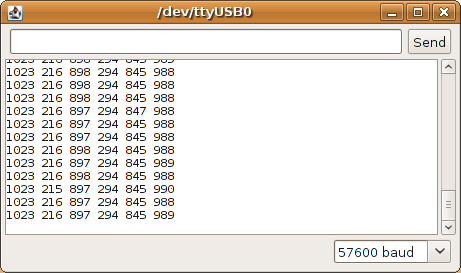Metro Library
Metro, by Thomas Ouellet Fredericks, makes it easy to schedule events to occur at regular intervals. You can creates as many Metro objects as you need, each for its own interval, and check them in your loop() function.
| Download: |
Included with the Teensyduino Installer |
Hardware Requirements
None. Metro uses the built-in timer.Basic Usage
Metro myname = Metro(milliseconds);Create a Metro object that schedules every "milliseconds". You can create as many Metro objects as you need, each with its own name and separate interval.
myname.check()Check if the interval has elapsed. Returns true if it has, false if it has not (yet).
myname.interval(milliseconds)Change to a new interval setting.
myname.reset()Reset the interval.
Example Program
The example program, available from File > Examples > Metro > serialInterval uses Metro to schedule reading the analog inputs 4 times per second.

// This example sends a Serial message every 250 milliseconds #include <Metro.h> // Include the Metro library Metro serialMetro = Metro(250); // Instantiate an instance void setup() { Serial.begin(115200); // Start the Serial communication } void loop() { if (serialMetro.check() == 1) { // check if the metro has passed it's interval . // Output all the analog readings seperated by a space character for (int i = 0; i < 6; i++ ) { Serial.print (analogRead( i) ); Serial.print(32,BYTE); } // Terminate message with a linefeed and a carriage return Serial.print(13,BYTE); Serial.print(10,BYTE); } }